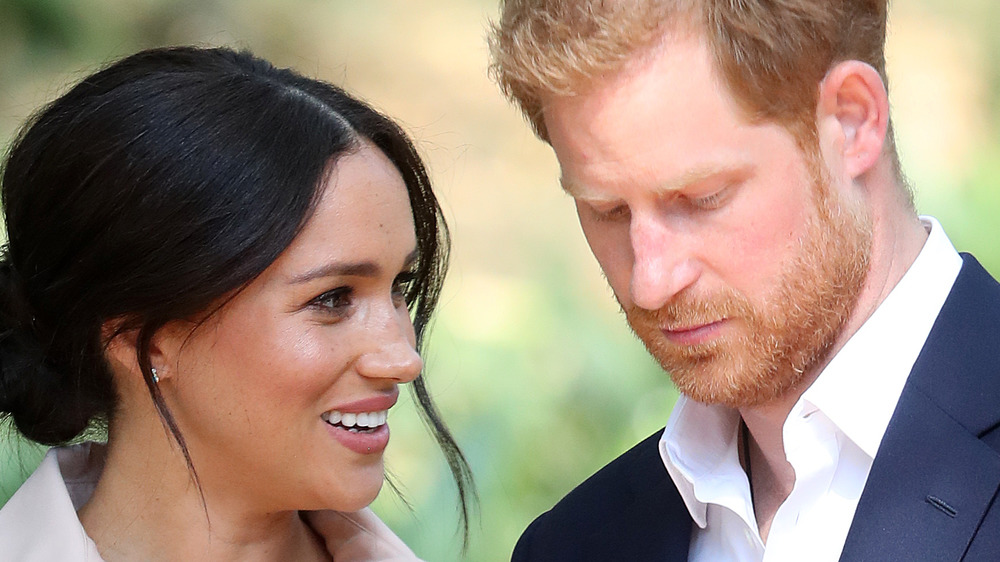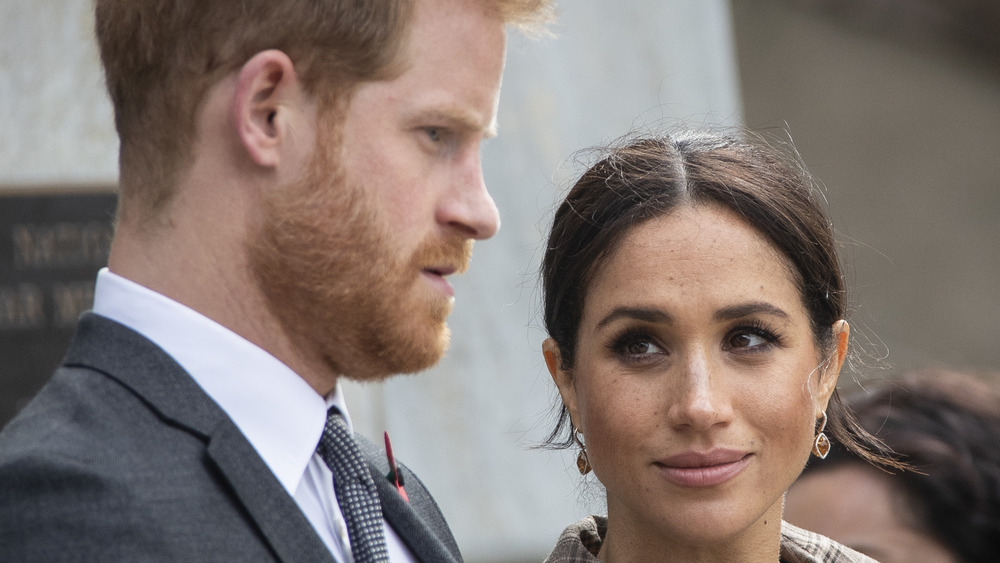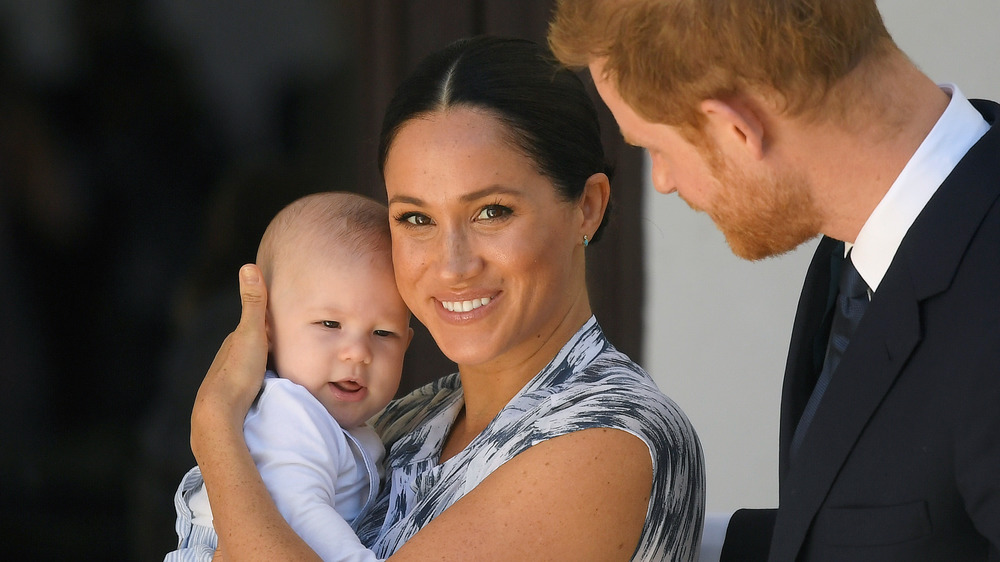Why Harry And Meghan's Privacy Is Even Less Protected In The US
Meghan Markle and Prince Harry, the Duchess and Duke of Sussex, do not take media bullying lightly. That sentiment proved apparent on Feb. 11, 2021, when Meghan announced a legal victory against the "dehumanizing practices" of British tabloids, criticizing them for publishing a private letter she had sent her father, according to Reuters.
She sued Associated Newspapers and its subsidiary, Mail on Sunday, in August 2018, for leaking selections of the letter in an alleged breach of her privacy, according to The Hollywood Reporter. The duo later left England and stepped down as senior members of the royal family, embarking on a new chapter in California. They also announced on Feb. 14, 2021, that they are expecting their second child.
Although it seems at first glance that life might be better for Harry and Meghan in the United States, there may be underlying reasons to prove otherwise, at least in terms of protection and privacy. Los Angeles divorce attorney Christopher Melcher, of Walzer Melcher, spoke with Nicki Swift about the unexpected struggles Meghan and Harry might face in the U.S. — keep reading to find out what those are.
Did the British media push Meghan and Harry out?
Princess Diana died on Aug. 31, 1997, with many people both in Britain and around the world blaming the media for her untimely death, according to The Washington Post. That possibly plays an impact on Prince Harry's reaction to the media as a grown many with a family of his own, in Christopher Melcher's opinion. "For Prince Harry, the death of his mother, Princess Diana, has to be on his mind, front and center," the divorce attorney told Nicki Swift. "Even following her divorce from Prince Charles, she was still hounded by the paparazzi and died in a Paris car crash while being followed by the media."
This harrowing relationship between royals and the media seemingly impacted Harry and Meghan Markle, too. "The British press is notoriously difficult and Prince Harry and Meghan Markle were already uneasy with the way they were being covered," Melcher said. "As part of the Royal Family, the press were never going to go away and the more they fought it, the more cantankerous their relations with the British press were sure to become."
In Melcher's opinion, it was the birth of their first child that really prompted the departure from England. "When you add Archie into the family, that may have really triggered the couple to abdicate the Royal Family and move to California." That all makes sense, but Melcher explained that media coverage in the U.S. might not be as idyllic might be imagined.
Meghan and Harry might not have as many protections
With Prince Harry and Meghan Markle's move to California, there is a plus side concerning media coverage. Christopher Melcher told Nicki Swift that they have more control over when they choose to leave their home. Plus, they have a very secure setup, as Hello! Magazine points out.
However, certain protections in England aren't in effect in the United States. "Privacy laws in England elevate the rights of the individual over the press," Melcher tells Nicki Swift. "An English court can prohibit the publication of information about a child. This is not the case in America." Melcher continues, "The law in the U.S. is opposite. Our Constitution rejects governmental interference with the press, giving the media the right to publish information subject to few restrictions. Public figures have almost no protection under U.S. law from unflattering stories. Markle and Harry will not have the protections they did in England. They could be subject to more exposure and scrutiny in California than could exist in England."
But there is some protection in the U.S., especially in California. Laws prohibit the paparazzi from following people, trespassing on their private property, or using drones to catch family moments. Sadly, this protection doesn't always prove enforcable. "Those laws are difficult to enforce unless you have the names of the individuals who committed the offense," Melcher explains. "The enormous sums paid for compromising photos of celebs makes it worthwhile to paparazzi even if caught."



